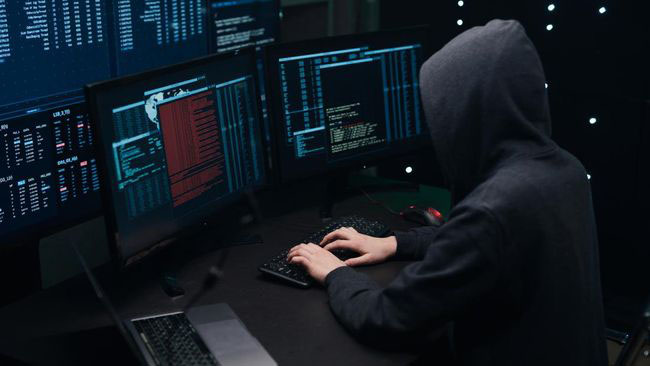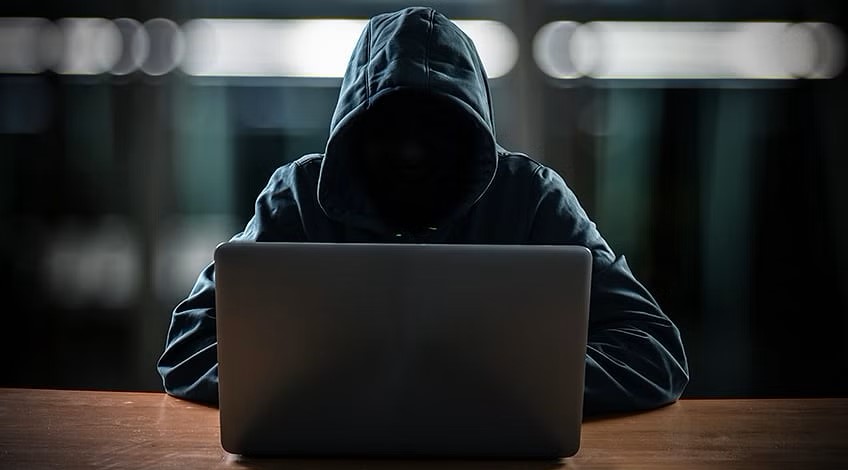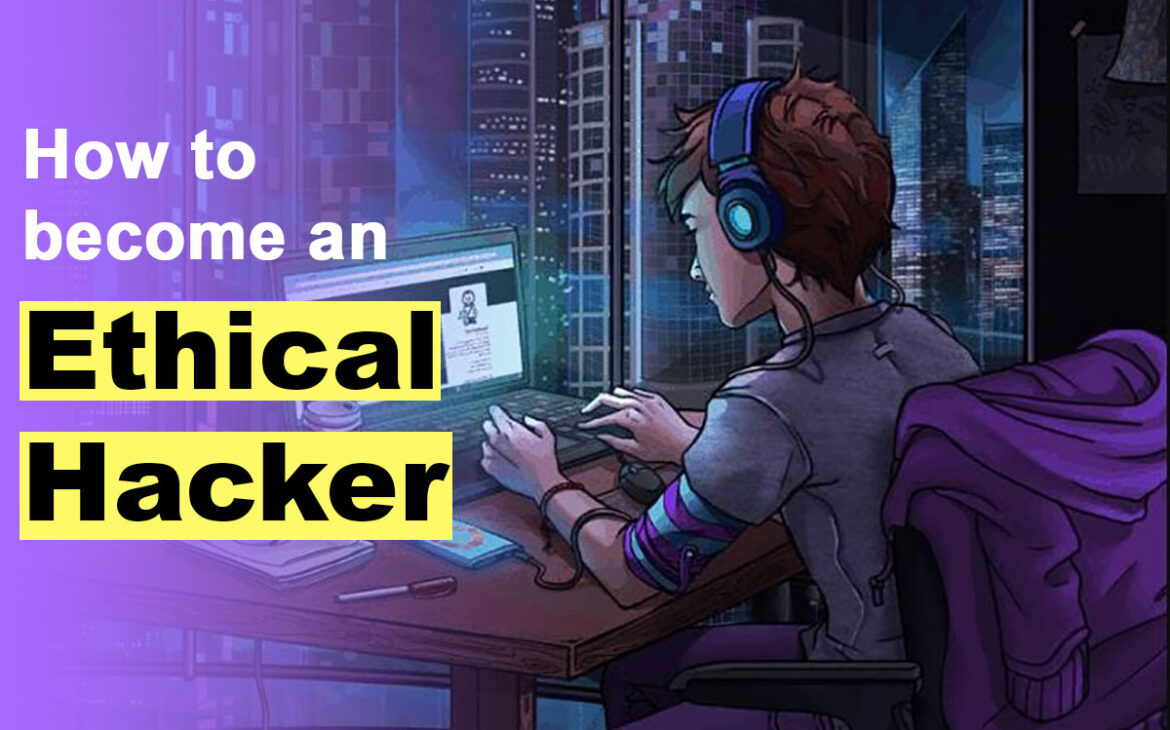How To Become A Certified Ethical Hacker
As the digital landscape continues to expand, so does the need for robust cybersecurity measures. With the rise in cyber threats and attacks, organizations are increasingly seeking professionals who can protect their systems and networks from malicious hackers. A certified ethical hacker is a skilled professional who uses their knowledge and expertise to identify vulnerabilities, test security systems, and ensure the overall integrity of an organization’s digital infrastructure. In this article, we will explore the steps and requirements to become a certified ethical hacker, the essential skills and knowledge needed in this field, as well as the career opportunities and advancements available to those with this certification.

1. Introduction to Certified Ethical Hacking
Understanding Ethical Hacking
Let’s face it, hacking has a bad reputation. But not all hackers are up to no good. Enter the certified ethical hacker, the good guys in the world of hacking. These individuals use their skills to identify vulnerabilities and weaknesses in computer systems, networks, and software, all with the permission of the system owners. It’s like being a detective, but with a keyboard instead of a magnifying glass.
Importance of Ethical Hacking in Today’s Digital Landscape
In today’s digital age, where everything from our personal information to our financial transactions is stored online, the need for strong cybersecurity has never been greater. That’s where ethical hacking comes in. By proactively identifying and fixing vulnerabilities, ethical hackers help protect organizations and individuals from malicious cyber attacks. Think of them as the superheroes of the digital world, fighting against cybercriminals and keeping us safe.
2. Understanding the Role of a Certified Ethical Hacker
Difference between Ethical Hackers and Malicious Hackers
While both ethical hackers and malicious hackers possess similar technical skills, their intentions couldn’t be more different. Malicious hackers, also known as black hat hackers, exploit vulnerabilities for personal gain, causing harm and chaos. On the other hand, ethical hackers, or white hat hackers, use their skills for good. They work within legal boundaries and aim to improve security by identifying weaknesses before they can be exploited.
Responsibilities and Scope of Certified Ethical Hackers
Certified ethical hackers have a vital role in ensuring the security and integrity of computer systems and networks. They conduct penetration testing, vulnerability assessments, and risk analysis to assess potential threats and vulnerabilities. They then provide recommendations and implement countermeasures to strengthen the system’s defenses. In short, they are the frontline defenders against cyber attacks, ensuring that organizations can operate safely in the digital realm.

3. Essential Skills and Knowledge for Ethical Hacking
Technical Skills Required for Ethical Hacking
To become a certified ethical hacker, you’ll need to have a solid foundation in various technical areas. These include networking, operating systems, databases, web applications, cryptography, and more. Additionally, proficiency in programming languages such as Python, Java, or C++ can be extremely beneficial. A deep understanding of these areas allows ethical hackers to identify vulnerabilities and exploit them in a controlled and ethical manner.
Knowledge Areas and Domains Covered in Ethical Hacking
Ethical hacking covers a wide range of knowledge areas and domains. These include network security, system security, web application security, wireless security, cloud security, and more. A certified ethical hacker must possess a comprehensive understanding of these areas to effectively assess, analyze, and secure different aspects of computer systems. It’s like being a jack of all trades when it comes to safeguarding digital infrastructure.

4. Steps to Becoming a Certified Ethical Hacker
Evaluating Your Interest and Aptitude in Ethical Hacking
Before diving headfirst into the world of ethical hacking, it’s important to evaluate your interest and aptitude for the field. Ask yourself if you genuinely enjoy problem-solving, have a knack for technology, and possess a strong ethical compass. Ethical hacking requires dedication, continuous learning, and a genuine passion for cybersecurity.
Getting Started with Basic Networking and Security Concepts
To embark on your ethical hacking journey, start by building a solid foundation in networking and security concepts. Familiarize yourself with TCP/IP protocols, network architecture, firewalls, and routers. Understanding how data flows through networks and the fundamentals of network security will set the stage for more advanced topics in ethical hacking.
Building a Strong Foundation in Programming and Scripting
Programming and scripting are essential skills for ethical hackers. Learning languages like Python, which is highly versatile in the cybersecurity realm, will enable you to automate tasks, develop tools, and exploit vulnerabilities effectively. Additionally, familiarize yourself with scripting languages like PowerShell and Bash, as they prove invaluable in various hacking scenarios.
Becoming a certified ethical hacker is an exciting and rewarding career path. It requires a combination of technical skills, ethical mindset, continuous learning, and a dedication to keeping the digital world secure. So, if you’re ready to put on your hacking hat and embark on this adventure, get ready to become the cyber defender we all need!
If you want to build your website in an affordable price contact: www.nextr.in

5. Choosing the Right Certification Program
If you’ve decided to dive into the exciting world of ethical hacking, the first step is to choose the right certification program. With so many options available, it can feel like navigating a maze of acronyms and jargon. Fear not, intrepid hacker-to-be, for we’re here to guide you through the process.
Overview of Popular Ethical Hacking Certification Programs
When it comes to ethical hacking certifications, there are a few heavy hitters in the industry. Some of the most popular programs include Certified Ethical Hacker (CEH), Offensive Security Certified Professional (OSCP), and CompTIA Security+. Each certification has its own unique focus and benefits, so it’s important to research and choose the one that aligns with your goals and interests.
Comparing Certification Requirements and Exam Formats
Certification programs vary in their requirements and exam formats. Some certifications may have prerequisites, such as a certain level of experience or completion of specific training courses. The exam formats can range from multiple-choice questions to hands-on practical tests. Make sure to carefully review the certification requirements and exam formats before committing to a particular program.

6. Preparing for the Certified Ethical Hacker Exam
Ah, the Certified Ethical Hacker (CEH) exam. The pinnacle of your ethical hacking journey. But before you can conquer this beast, you need to prepare yourself adequately.
Understanding the Exam Structure and Syllabus
The CEH exam is no walk in the park, but with proper preparation, you can increase your chances of success. Familiarize yourself with the exam structure, which typically consists of multiple-choice questions covering various topics, such as foot printing and reconnaissance, system hacking, and network scanning. Take the time to thoroughly understand the exam syllabus to know what areas you need to focus your studies on.
Effective Study Strategies and Resources
To tackle the CEH exam, you’ll need effective study strategies and resources. Create a study plan, set goals, and allocate dedicated study time each day. Utilize a combination of official study guides, online tutorials, practice exams, and hands-on labs to enhance your learning experience. Remember, practice makes perfect, so don’t shy away from getting your hands dirty.
Hands-on Practice and Lab Environment Setup
Ethical hacking is a hands-on discipline, so it’s crucial to gain practical experience. Set up your own lab environment with virtual machines, networking tools, and vulnerable systems to practice your hacking techniques. This hands-on practice will not only sharpen your skills but also boost your confidence when facing real-world scenarios.
If you want to build your website in an affordable price contact: www.nextr.in

7. Ethical Hacking Tools and Techniques
As an ethical hacker, you’ll need an arsenal of tools and techniques at your disposal. Let’s dive into the exciting world of hacking tools and methodologies.
Overview of Commonly Used Ethical Hacking Tools
From network scanners to password-cracking utilities, ethical hackers rely on a wide array of tools to uncover vulnerabilities and secure systems. Some popular tools include Nmap, Wireshark, Metasploit, and John the Ripper. Familiarizing yourself with these tools and their functionalities will be key in your ethical hacking journey.
Exploring Various Hacking Techniques and Methodologies
Ethical hacking is not just about pressing buttons and waiting for magic to happen. It involves understanding different hacking techniques and methodologies. Learn about concepts like social engineering, phishing, SQL injection, and buffer overflow. Understanding these techniques will allow you to think like a hacker and protect against malicious attacks.

8. Career Opportunities and Advancement in Ethical Hacking
Now that you’ve acquired your certification and honed your hacking skills, it’s time to explore the thrilling world of career opportunities and advancement in ethical hacking.
Job Roles and Industries Hiring Certified Ethical Hackers
Certified ethical hackers are in high demand across various industries. From cybersecurity firms and government organizations to financial institutions and tech companies, the need for skilled professionals who can identify weaknesses in systems is ever-growing. Job roles can range from penetration testers and security analysts to security consultants and vulnerability assessors.
Continuing Education and Skill Development in Ethical Hacking
Ethical hacking is a field that constantly evolves, so it’s important to invest in continuing education and skill development. Stay updated with the latest hacking techniques, attend conferences, participate in bug bounty programs, and consider pursuing advanced certifications like the Offensive Security Certified Professional (OSCP) to further enhance your expertise.
Remember, becoming a certified ethical hacker is not just about a fancy title—it’s about understanding the importance of ethical hacking in protecting our digital world. So gear up, keep learning, and let your hacking skills shine for good!
Becoming a certified ethical hacker opens up a world of opportunities in the field of cybersecurity. By acquiring the necessary skills, knowledge, and certifications, you can become a respected professional who plays a crucial role in safeguarding digital systems and networks. With the constant evolution of technology and the increasing threat of cyber attacks, the demand for certified ethical hackers will continue to grow. So, take the necessary steps, invest in your education and training, and embark on a rewarding career in ethical hacking, where you can make a significant impact in protecting and securing the digital world.

Conclusion
Becoming a certified ethical hacker means learning how to protect computer systems and find any weaknesses in them, but in a good way! It’s like being a superhero who helps keep the bad guys away from computers.
To become a certified ethical hacker, you need to follow these steps:
1. Learn about computers: First, you need to understand how computers work and how they can be attacked by bad people. You can start by playing with computers and learning how to use them.
2. Study hacking techniques: But remember, we only want to use these techniques for good! You can learn about different hacking methods and tools that hackers use, so you can understand how to protect against them.
3. Take a course: There are special courses called “certified ethical hacker” courses that teach you all the important things you need to know. These courses are like going to school to become a superhero!
4. Practice, practice, practice: Just like superheroes need to train a lot, you need to practice what you’ve learned. You can try hacking into your own computer or ask people if you can test their computer security (with their permission, of course!).
5. Take the exam: After you finish the course and feel confident in your skills, you can take a special exam to become a certified ethical hacker. It’s like a test to make sure you know how to protect computers and use your powers for good.
6. Get your certificate: If you pass the exam, you will receive a certificate that proves you are a certified ethical hacker! It’s like getting a special badge that shows you are a superhero in protecting computers.
Remember, being a certified ethical hacker means using your powers for good and helping people. It’s important to always ask for permission before testing someone’s computer and never use your skills to harm others.

Frequently Asked Questions (FAQ)
1. What is the difference between a certified ethical hacker and a malicious hacker?
A certified ethical hacker is a professional who is authorized to legally and ethically hack into systems with the permission of the owner. Their goal is to identify vulnerabilities and improve the security of the system. On the other hand, a malicious hacker engages in unauthorized activities with the intent to exploit vulnerabilities and cause harm.
2. What are the popular certification programs for becoming a certified ethical hacker?
Some of the well-known certification programs for ethical hacking include Certified Ethical Hacker (CEH), Certified Information Systems Security Professional (CISSP), Offensive Security Certified Professional (OSCP), and CompTIA Security+.
3. Do I need a technical background to become a certified ethical hacker?
While having a technical background can certainly be advantageous, it is not a strict requirement. With dedication, commitment, and the willingness to learn, individuals from various backgrounds can acquire the necessary skills and knowledge to become a certified ethical hacker.
4. What career opportunities are available for certified ethical hackers?
Certified ethical hackers can find employment in a wide range of industries, including government agencies, financial institutions, technology companies, and cybersecurity firms. They can work as penetration testers, security analysts, security consultants, or even start their own cybersecurity consulting businesses.
If you want to build your website in an affordable price contact: www.nextr.in
Read this: Chat GPT Revolution, A Remarkable Achievement In AI Industry


















